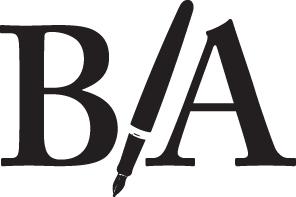Empathy and the Skill of Active Listening
It was the first time we'd met. Fairly certain it was a Chick-Fil-A somewhere in Atlanta. We sat across the table from each other. I asked a few questions and learned something about this person and their work.
His phone was on the table. Face up. Pinging away.
Every buzz diverted his attention. By the end of the meeting, he'd answered numerous text messages and had taken at least three phone calls.
Did not go down as one of my most productive meetings.
Empathy begins with listening. And listening is a learned skill, especially in our day of constant notifications.
“Most people do not listen with the intent to understand; they listen with the intent to reply. ”
Listening well is both a skill and an art form. And something I'm trying to improve. As I observed the person at my Chick-Fil-A meeting, I realized this was something I never wanted to become. This world has enough glassy-eyed drones, enslaved to every ping of their smartphones.
But someone who will actively listen? This is something rare and valuable. A skill worth cultivating. And a skill which doesn't require much effort, only intentionality.
Active listening - Best Practices
Listening better is an ongoing lesson. Verbal processors, in particular, must practice discipline in meetings and conversations. It's far too easy for us to think out loud. This turns into more talking, more fixing problems, and less understanding and empathy. More than once, I've solved the wrong problem because I've not listened well enough or long enough to understand the right problem. I've found six practices which help with this. I could add more, but here's where I begin.
Use first names
Identity is crucial. Yet, I'm terrible with names and apt to forget. I must be painstakingly intentional about this. Before I go into a meeting, I review my notes to make certain I know everyone's first name. Once in the meeting, I try to use names a couple of times within the first 10 minutes of the conversation. This may seem small - but it feels important. Knowing a person's identity is the beginning of an empathetic conversation. Identity starts with a first name.
Get rid of everything that dings, buzzes, notifies, or otherwise distracts
This can not be overstated. I often lock my phone in the car before going into a meeting, even if it's a friend for coffee. If my phone is on my person, I put it to airplane mode. Many people have a smartwatch on their wrists now. Do what you must to avoid looking at watch notifications. After getting an Apple Watch, I realized text notifications on the wrist are as distracting as the ones on the phone. Maybe more so. Constant looking at the wrist makes people think you're watching the clock. You're out of time. You don't care about them. It's possible to be all there with a person. Get rid of notifications.
If taking notes - go analog
I will often take notes in a meeting. My tools of choice are a legal pad and a pen. I have a colleague who uses an iPad pro for meeting notes - but he uses an electronic pencil. That works, as well. There is something about typing during a meeting that's both distracting and disconcerting. Is he typing notes? Really? Is he responding to Facebook posts? Is he checking email? We don't know.
Go analog. As soon as the meeting is over, grab a coffee and digitize your notes according to your system. It puts the other person at ease.
Ask great questions
This is the most important empathy skill. People love to talk about themselves - including you and me. The best way to avoid talking about ourselves is to ask great questions to get others talking. A quick Internet search will produce a plethora of material to help with better question asking. Ask open-ended questions which allow for elaboration, details, and expression. Here are a few examples:
"Why?"
"What happened when ...?"
"What do you think about ...?"
Try it at your next meeting. It's a game changer.
Reiterate
This is an important step. Particularly in conversations where much something is at stake. Reiteration is simply repeating back what you understand.
"What I hear you saying is ... Is that correct?"
This practice goes a long way to real understanding.
Be okay with human ambiguity
Human beings are complex creatures. Sometimes we have to be okay with that.
People are complex and often contradictory. We have to be okay with that. I often reflect on a meeting, only to realize later that there's still some confusion. It's okay. There are complexities in the other person's life they are not telling you about. Spouse, kids, friends, work, mortgages, cars, parents. Our lives are complicated. The person sitting across the table from me has multiple levels of complication.
We are dealing with complex human creatures with every interaction. Every day. The distracted person across the table from me at Chick-Fil-A may have a good reason for being distracted today.
It's up to me to choose empathy.
